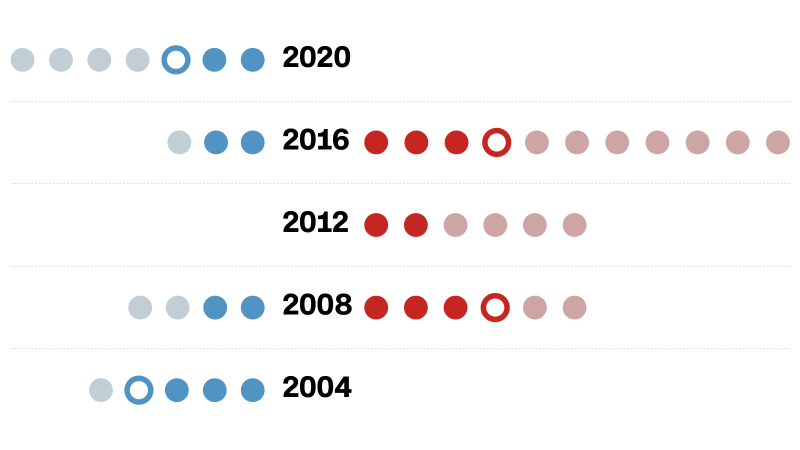Republican presidential candidate Nikki Haley lost in Iowa and New Hampshire. She placed second to “none of these candidates” in a Nevada primary for which there were no delegates at stake and where Donald Trump was not on the ballot. Now she has lost the primary in her home state of South Carolina, where she was a two-term governor.
Her insistence on staying in the race puts her in a rarefied position: the losing candidate who won’t quit.
No other major, modern candidate has refused to drop out of the race after so many losses.
Sen. Marco Rubio, the Florida Republican who ran in the crowded 2016 field that produced Trump as the GOP nominee, dropped out after he lost his home state of Florida. Fellow Floridian Jeb Bush, a former governor, dropped out earlier, after a disappointing finish in nearby South Carolina.
On the Democratic side, Sen. Elizabeth Warren of Massachusetts quit the Democratic race in 2020 shortly after Super Tuesday, which that year featured the Massachusetts primary. Finishing third was enough to convince Warren things were over.
Most candidates reading the writing on the wall drop out after Iowa or New Hampshire, or at least early enough to avoid the embarrassment of a home-state loss. That’s what Sen. Amy Klobuchar did in 2020, suspending her campaign days before Warren and before she was set to lose the primary in her home state of Minnesota.
Some candidates do keep going. They’re usually more on the fringes of their parties.
Former Rep. Ron Paul ran in both the 2008 and 2012 GOP primaries. He admitted he wasn’t going to win and would wind down active campaigning before losing the primary in his home state of Texas in 2008. His campaign ran out of money for active campaigning in 2012, but he technically remained an…
Read the full article here

Leave a Reply